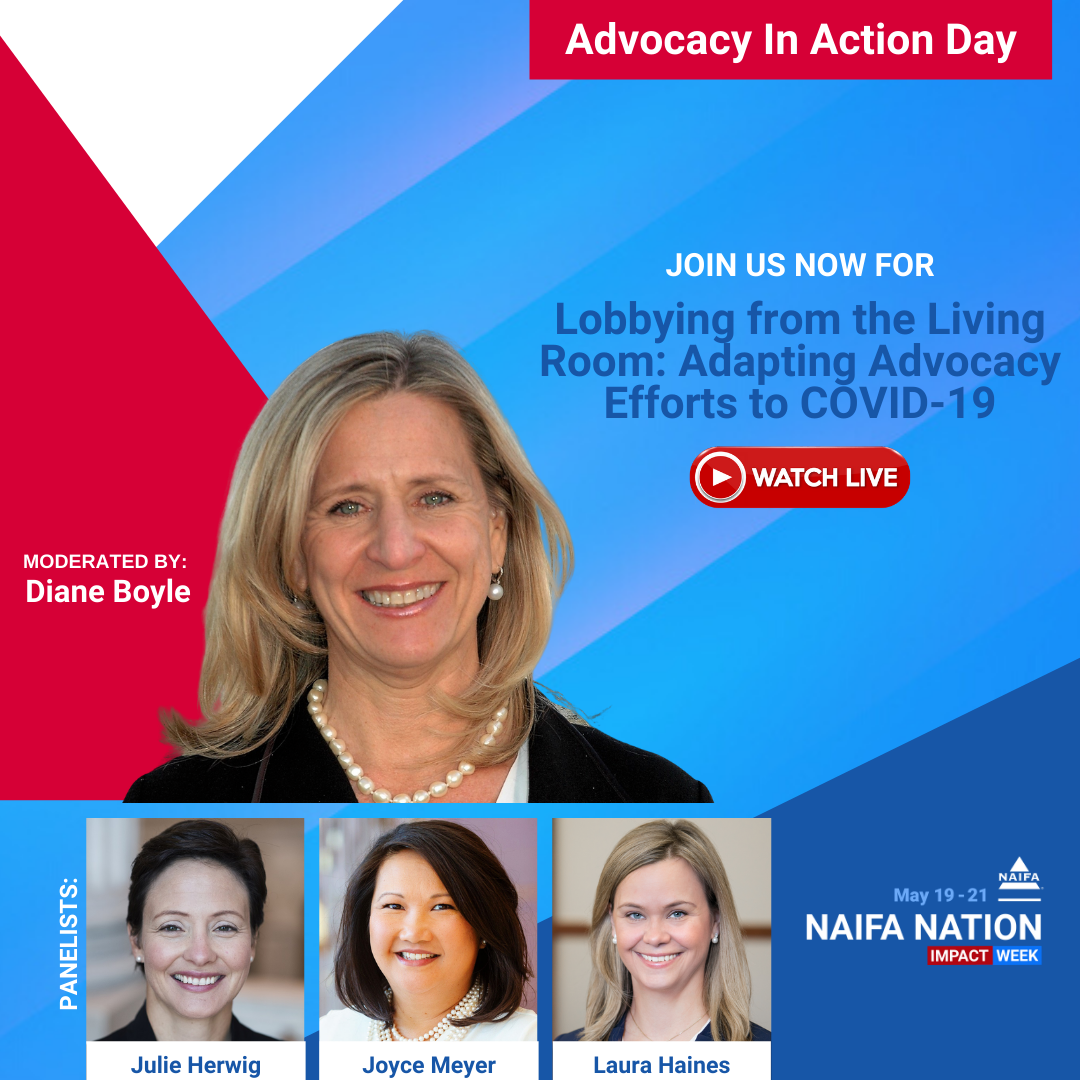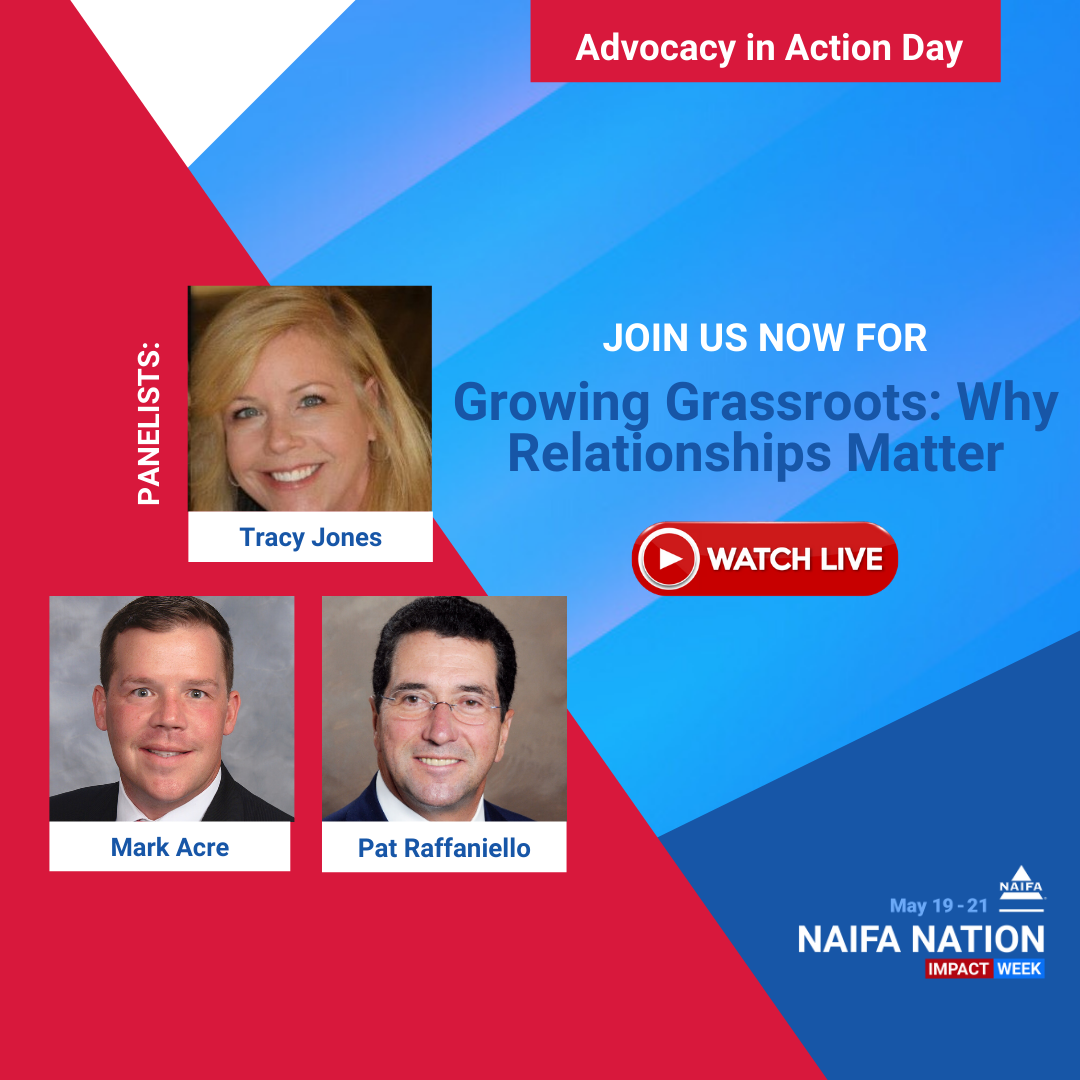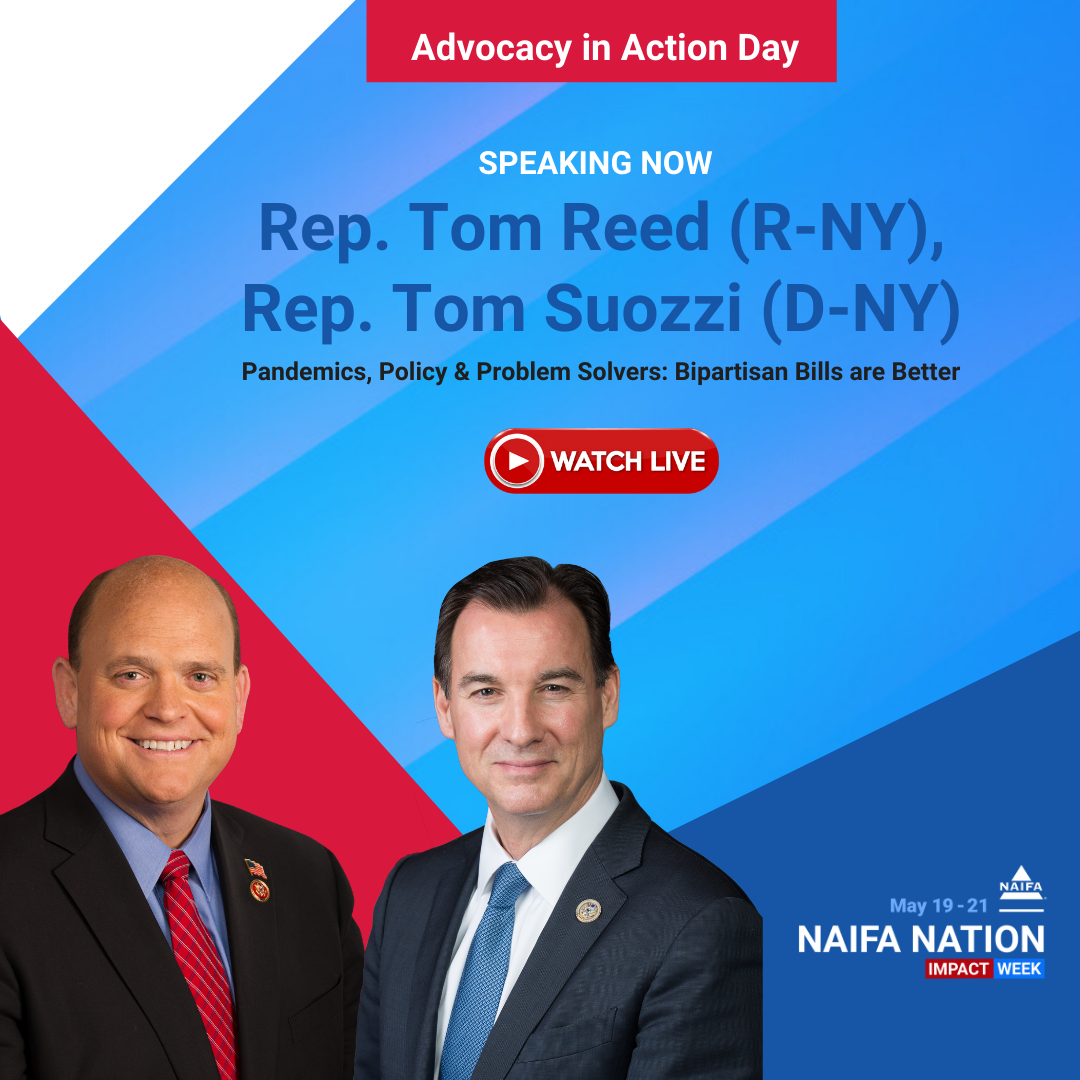Moderator: Diane Boyle
Panelists:
Laura Haines, Guardian, SVP, Government Affairs
Julie Herwig, New York Life, SVP, Governmental Affairs
Joyce Meyer, ACLI, EVP, Government Relations
How Has COVID-19 Changed Advocacy?
Just as the COVID-19 outbreak has changed the ways people do business and live their day-to-day lives, it has also had an impact on lobbying and advocacy. The biggest changes involve locations – on-line rather than in-person meetings – and logistics. But other aspects of advocacy remain the same.
“The goal of building relationships has not changed,” said Laura Haines. She says lobbyist who are allied on issues are also working together to account for limitations on access to lawmakers. Increased coordination helps avoid bombarding legislators with calls.
“Because all of these relationships [with lawmakers] have been cultivated, these conversations are pretty seamless, just not in person,” said Joyce Meyer. She added that COVID-19 has created new ways to relate with members of Congress. It provides “an area of common space.” It is easy to make connections, because we’re all in this together.
How Do Agents Fit In?
“Agents have a unique lens on the local economy and on Main Street,’ said Haines. These are areas legislators are interested in. Taking a pulse of Main Street is important to members of congress and state legislators, and that is something NAIFA members are well-positioned to do.”
Agents and advisors often have an advantage over professional lobbyist, said Julie Herwig. “Your member of Congress works for you, not any of us. You are voters and centers of influence in their districts.”
Meyer agreed. “Agents and advisors make policy issues into local and community issues,” she said. Agents can talk about the direct effects of policies on local residents in districts back home. Agents are constituents, so congressional office contacts with them always turn into action items for Congressional staff. And those action items are what produce results.
Is It Vital to Be a Policy Expert?
Agents are effective advocates because they provide stories that relate policy decisions to senators’ and representatives’ constituents. They do not need to be able to analyze fine points of policy or do deep dives into legislation.
“You don’t need to be an expert in tax policy or retirement policy or whatever,” Meyer said. “You are a valuable resource because you bring a story about a constituent back home. The effects of policies on people back home trigger action, not expertise.”
It’s also important to not get discouraged or intimidated, Herwig said. Relationships with legislators build over time, just like client relationships.
How Does the Industry Establish Good Will?
Haines said that agents and advisors can build good will by sharing how they and the industry are helping their communities, especially in a crisis. “You’re not asking for anything, but showing what you can give,” she said.
The pandemic spotlights the need for life insurance and “shows what we’re all about,” said Herwig. Good will is a product of lawmakers seeing how life insurance and other financial security products help people, and the crisis amplifies the situations life insurance was made to address.
Members of Congress know agents are there for people for many of life’s most important events, Meyer explained. This helps them see the good and important work financial professionals do for people. Agents are there for families during “happy and tremendously sad moments.”
“We are there in that moment for families when they need it most,” she said. “And that goes for COVID-19 right now.”
Agents make the biggest difference by sharing their stories, Diane Boyle said.
How Importance Are Congressional Staff Members?
Staffers do the research and briefings, Meyer said. When they hear agent stories, that “provides the impact.” Staffers help make connections to the communities. Meetings with agents and advisors provide staff members with context, added Haines. Many staffers are young and don’t have families of their own. Life insurance and other products and services protecting families may be new concepts to them. “The stories are the glue that make them stick,” Haines said.
“The staff is just as important as the members,” Herwig said. “They write the memos and make recommendations.” And a lower-level staff member may not be low-level for long. They gain experience and influence quickly. Many move up to become chiefs of staff or to run for office themselves.







